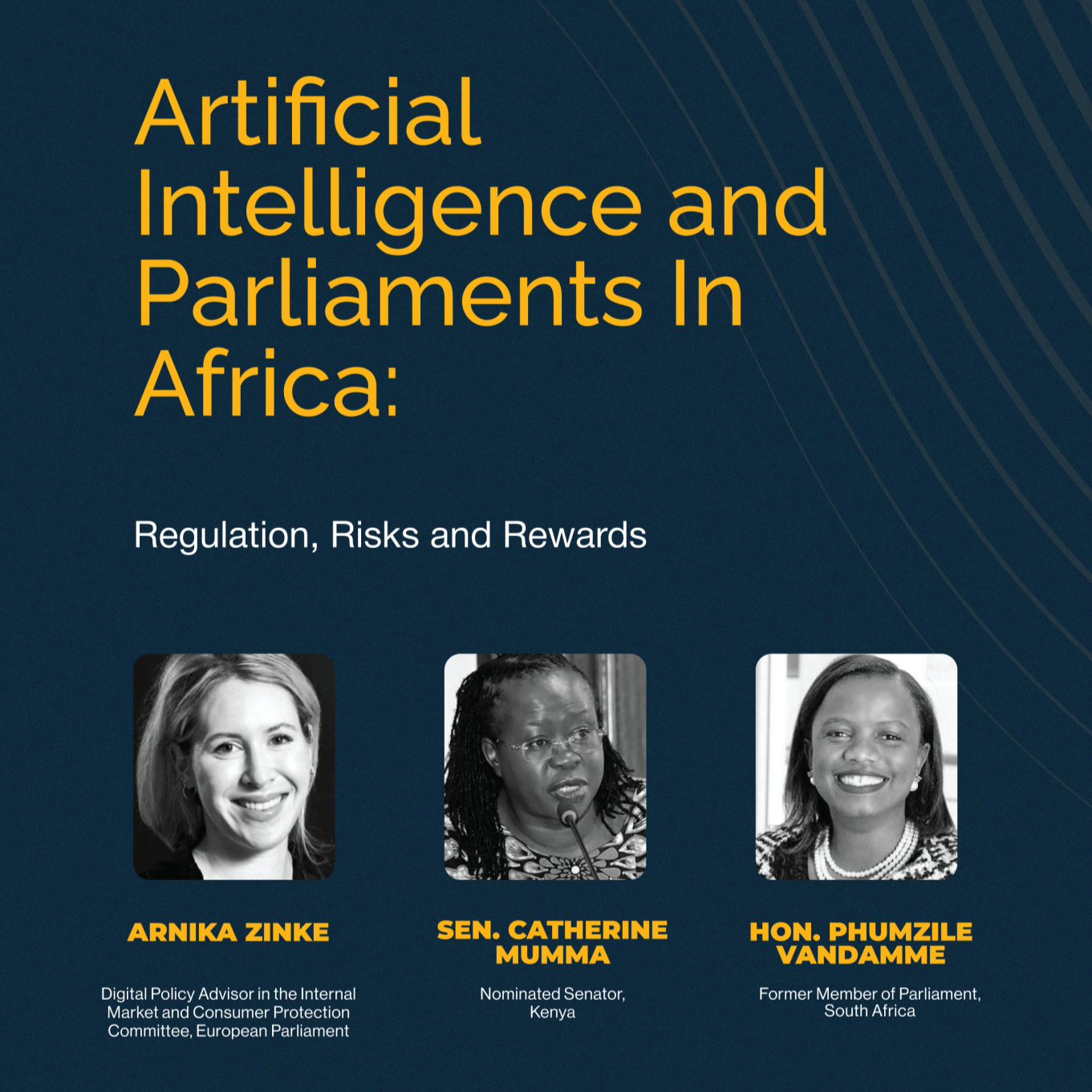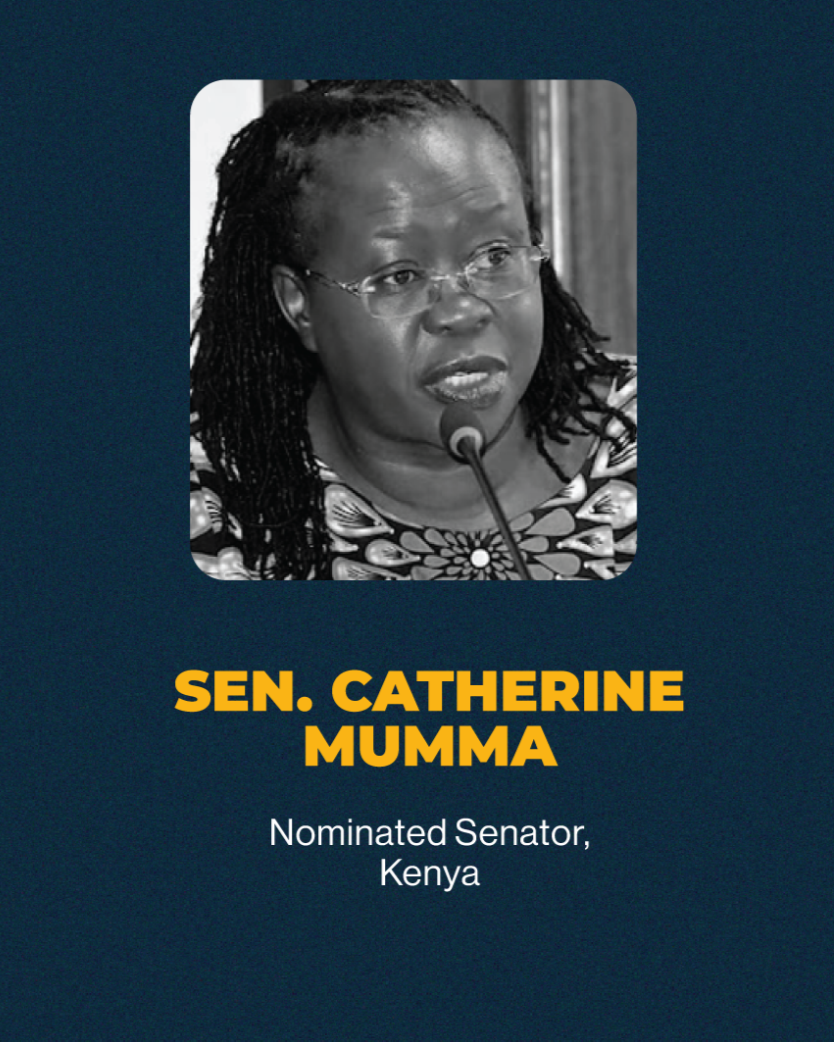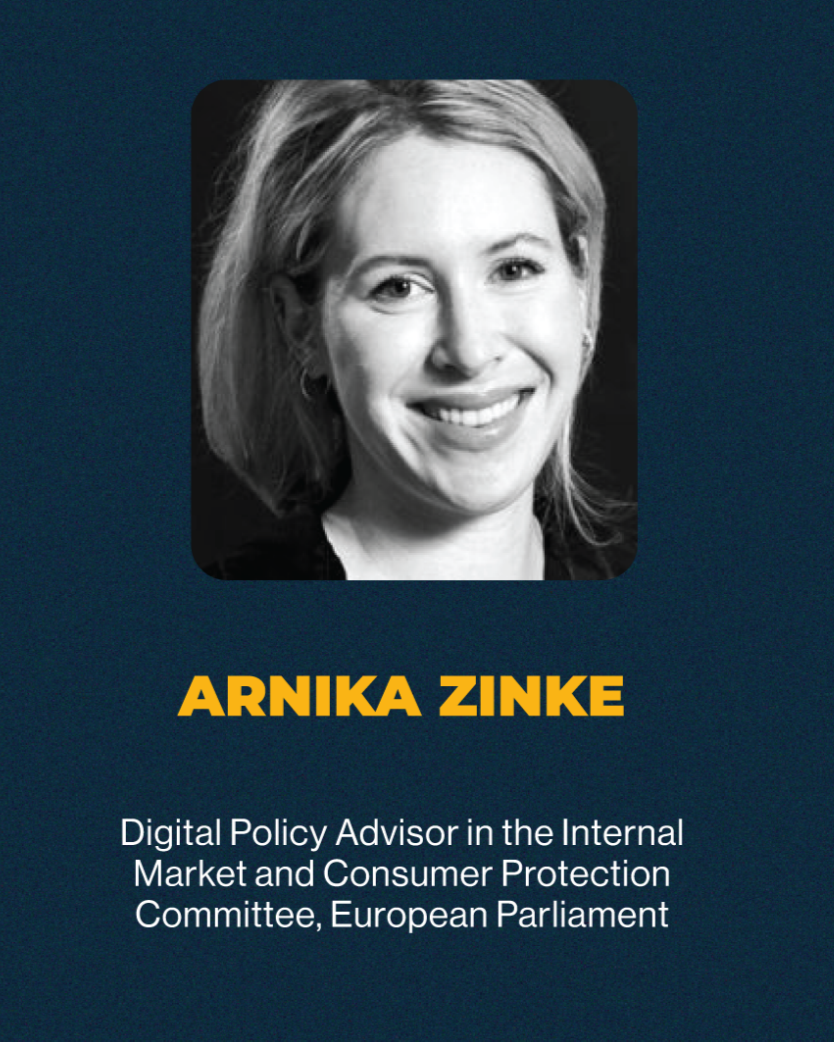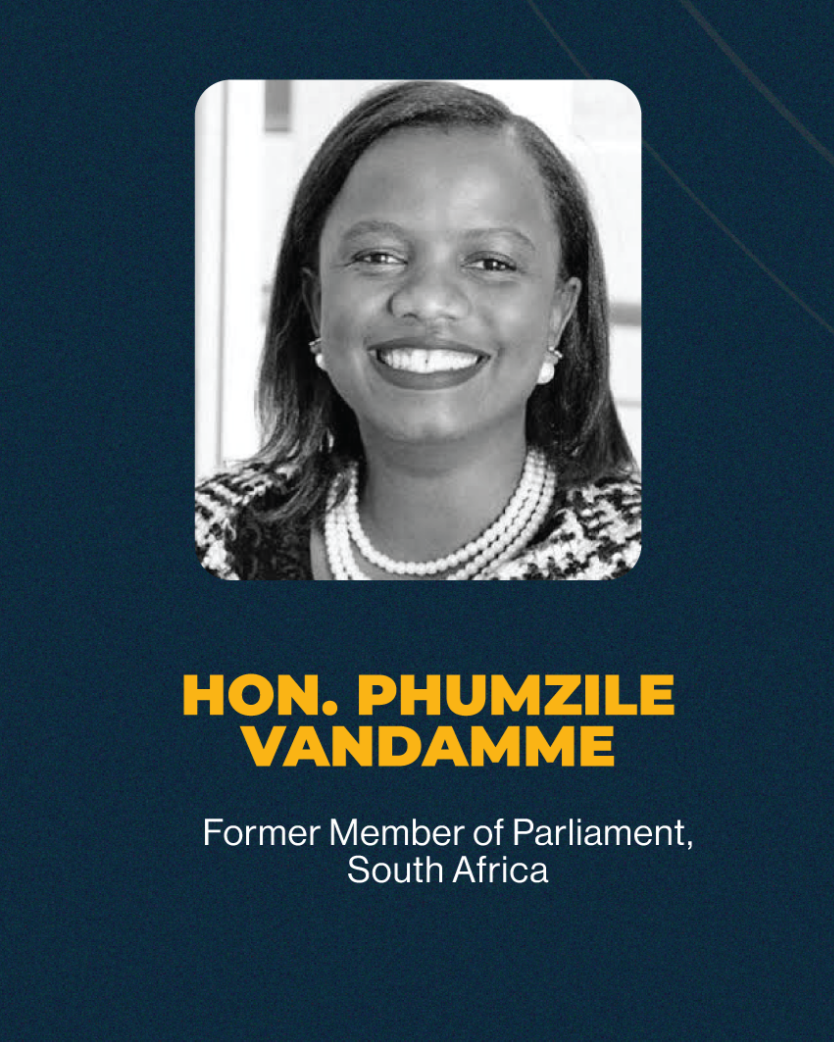
The session took place from 2pm to 3pm EAT on the 27th of August 2024 and attracted over 1000 virtual participants. The speakers included Kenya’s Nominated Senator Catherine Mumma, Hon. Phumzile Vandamme from South Africa, and Arnika Zinke from the EU Parliament. Maria Mbeneka expertly moderated the session.
Watch the full session Recording HERE80%
South Africa
Session Overview

Senator Mumma acknowledged that AI can bring positive societal change but also presents significant risks and challenges. Raising the concern that scientists are advancing AI development without sufficient accountability, while policymakers are lagging behind. This disconnect between AI creators and regulators leaves AI technologies largely unchecked, prompting the need for a closer dialogue between scientists and policymakers. According to Mumma, Africa must urgently start this conversation to ensure that AI technologies are both beneficial and protective of societal rights.

Ms. Arnika Zinke echoed these sentiments, affirming that now is the time to regulate AI systems. Sharing insights from the European Union's experience in developing AI regulations, she noted that some believed regulations were premature and should come only after technological advancements. However, the rapid rise of technologies like ChatGPT sparked widespread concerns around data protection, intellectual property, and job security, leading to calls for regulatory frameworks.

According to Zinke, AI regulations can establish principles that ensure safety, trustworthiness, and accountability, even as technologies evolve. Such legislation would not be tied to specific technologies but would set standards on how AI systems and models should function in the future. By doing so, regulation can address public concerns, build trust in governments, and ensure AI development remains aligned with societal values. The time to act is now, and Africa must take the lead in shaping responsible AI governance.
AI Policy Priority Areas
According to Ms. Arnika Zinke, the key policy areas to focus on when regulating AI include safety, fundamental rights, cybersecurity, and the environment. In discussing technology and innovation, it is essential to consider the impact on humans, mitigate biases, and address the environmental challenges posed by AI systems. One of the critical concerns is the energy consumption of AI models, which are extremely power-hungry. The question of whether there is enough energy to develop and sustain these systems is one the EU aimed to include in their AI Act, though it faced significant resistance during negotiations.

_____________The Gap
The major challenge is that technology and innovation will always outpace regulation and legislation. According to Hon. Phumzile Vandamme, there is an urgent need for greater accountability, especially in Africa, where leaders must do more to protect citizens from the potential harms of technology—something that is long overdue. Africa doesn't need to reinvent the wheel, but neither should it simply copy what has been done in regions like the EU. It's crucial to consider what it means for AI systems to be available in Africa, especially in terms of design contributions.
She raised the important question: Do African voices have a say at the design stage of technological systems? Are considerations for African-specific issues integrated into these technologies? If technologies are to be operational in Africa, they must address these local concerns.

According to Senator Mumma, we must recognize that current AI products are largely developed elsewhere, with African countries often using systems that were not designed with African needs in mind. This creates a gap between the technology being used and the specific needs and concerns of African societies, underscoring the need for Africa to have a greater role in shaping AI technologies.

Why eyes are on the Legislative arms
AI is advancing at an unprecedented pace. Shifting from a niche tool for software engineers to a mainstream technology accessible to everyday users. The release of ChatGPT-3 in November 2022 marked a significant moment, and within just four months, GPT-4 followed, propelling ChatGPT to become the fastest-growing website in history, with over 100 million users in just two months. This ignited an AI race.
Microsoft, after investing $13 billion in OpenAI, integrated ChatGPT into its products, transforming its search engine Bing with AI capabilities. Meanwhile, Google, which had previously made headlines with DeepMind’s victory over a human Go champion in 2016, swiftly responded with Bard, its own AI chatbot. Numerous smaller companies, empowered by open-source AI tools, have also joined the fray, further intensifying the competition in this rapidly evolving landscape.
The legislative arms of governments worldwide have been called upon to ensure the corporate AI race doesn't become reckless, requiring them to establish and enforce legal guardrails. However, keeping pace with AI-driven change often outstrips policymakers' expertise and authority. In Africa, for example, current regulatory statutes and structures were built on industrial-era assumptions that have already been outpaced by the first decades of the digital platform era. Existing rules lack the agility to address the speed of AI development.
AI is a multi-faceted capability, and a "one-size-fits-all" regulation will over-regulate in some cases while under-regulating in others. Moreover, AI, like many other technologies, transcends borders, adding another challenge for regulators. Regulation needs to be global in reach, yet agile enough to allow each jurisdiction to tailor laws to fit local circumstances.
To our policy makers, AI regulations are needed to reduce Ethical Concerns, eliminate ambiguity, create accountability, and among other things Driving Innovation.
Recommendations
There is a need for greater collaboration and consultation across the continent before technologies are given the green light. According to Hon. Phumzile Vandamme, it is not possible to legislate as soon as a new technology emerges because something new will always come in another year, and we cannot keep pace.
African Governments will need to collaborate and cooperate to establish broad frameworks while promoting and encouraging knowledge sharing and interdisciplinary collaboration. These frameworks will need to be adaptive and collaborative, lest they become unable to keep up with AI’s latest development. Regular reviews and updates will be key, as will agile experimentation in sandbox environments.
We need to invest more in our universities, particularly in research on AI, recognizing that the future of all sectors will be driven by technology, according to Senator Mumma. To develop effective policies, it is crucial to prepare our own human resources and expertise in AI. Members of parliament do not have inherent knowledge of how to create good laws, and if policymakers draft laws without proper understanding, it may cause more harm than good.

Public participation is key. Public engagement and inclusive decision-making will make or break any rules brought forwards. Policy makers need to involve diverse stakeholders in regulatory discussions, while engaging the public in AI policy decisions.
While global governance is crucial, it must be translated into meaningful, country-specific regulations and reforms to ensure that the benefits of AI and digital technologies are maximized for society while minimizing risks. National policymakers and reformers, including government and civil society leaders, play a pivotal role in advancing this agenda. They must prioritize shaping AI’s trajectory by addressing local and national challenges, focusing on societal needs over the interests of private tech companies. Policymakers should ask: What societal problems need solving? How can AI help? Who will benefit, and who may be disadvantaged? Identifying these challenges and evaluating regulatory solutions and their impacts should guide the creation, governance, and oversight of AI at every stage.
The key message from the session was clear: it is time for Africa to regulate AI and actively participate in global discussions on AI governance, development, and implementation. Policymakers must embrace expertise and foster stakeholder engagements to ensure the development of accurate, flexible regulations that can support the growth and progressive adoption of AI systems across the continent. These regulations should strike a balance between enabling innovation and mitigating the risks associated with AI, ensuring that Africa is both a contributor and a beneficiary in the global AI landscape.


